Are loose teeth a problem? Loose teeth are a fairly common oral issue. If loose teeth occur in children, there is no need to worry because this is a sign that the child is preparing to shed their baby teeth. However, loose teeth in adults is a cause for concern as it is a sign that a person may be experiencing health problems. Let’s explore this further with BeDental in the article below!
1. CAUSES OF LOOSE TEETH
What are the causes of loose teeth? When one or more teeth in the upper jaw are loose, it is an alarming sign that the oral health is facing serious issues. Specifically, the main reasons for loose teeth are as follows:
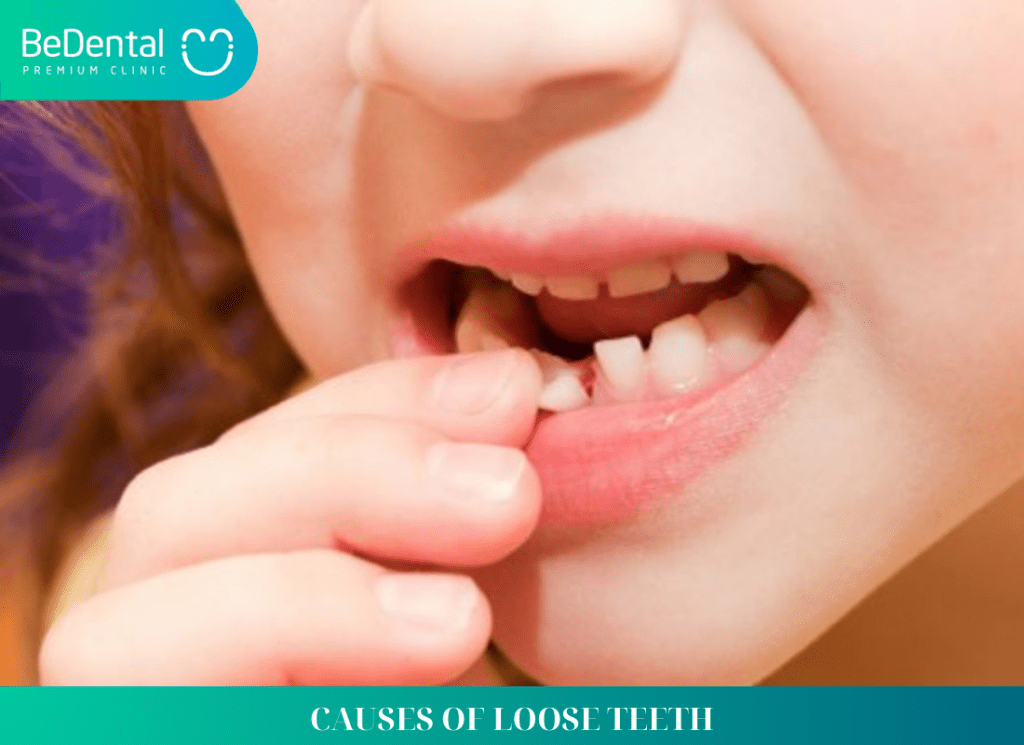
- Gingivitis: Gingivitis is a dangerous oral disease that damages soft tissues and ligaments surrounding the teeth. The longer gingivitis persists, the more loose and susceptible to falling out the tooth structures become.
See more: What is Abutment?
- Bone resorption: After a tooth falls out, there will be no tooth root to apply force, causing gradual resorption of the jawbone, leading to gum recession and neighboring teeth protruding, further causing tooth looseness.
- Bone loss: Individuals with this condition will have weak, soft teeth that are prone to looseness.
- External impact: Strong impact to the teeth from accidents or biting hard objects can damage the tissues surrounding the teeth, causing serious injuries to the bone structure and ligaments, resulting in unstable and loose teeth, and even tooth fractures.
- Strong impact on the jawbone: Any strong external force affecting the teeth, such as chewing on hard objects or a heavy impact, can cause the tissues surrounding the teeth to deteriorate, weakening the teeth and making them loose.
- Tooth decay: Decay can spread to the tooth root, causing inflammation and pressure, leading to gum disease and tooth instability, a common issue for patients with toothache.
- Pregnancy: During pregnancy, elevated levels of estrogen and progesterone negatively affect specialized tissues, including gums and supporting bone tissues. Additionally, heightened gum sensitivity during pregnancy makes them more prone to damage, increasing the risk of infection and loose teeth.
- Bruxism: Habitual teeth grinding can cause teeth to rub against each other, damaging the tooth enamel and dentin. Moreover, this action unintentionally puts pressure on the teeth, leading to tooth looseness and damage to the adjacent supporting tissues.
2. WAYS TO ADDRESS LOOSE TEETH
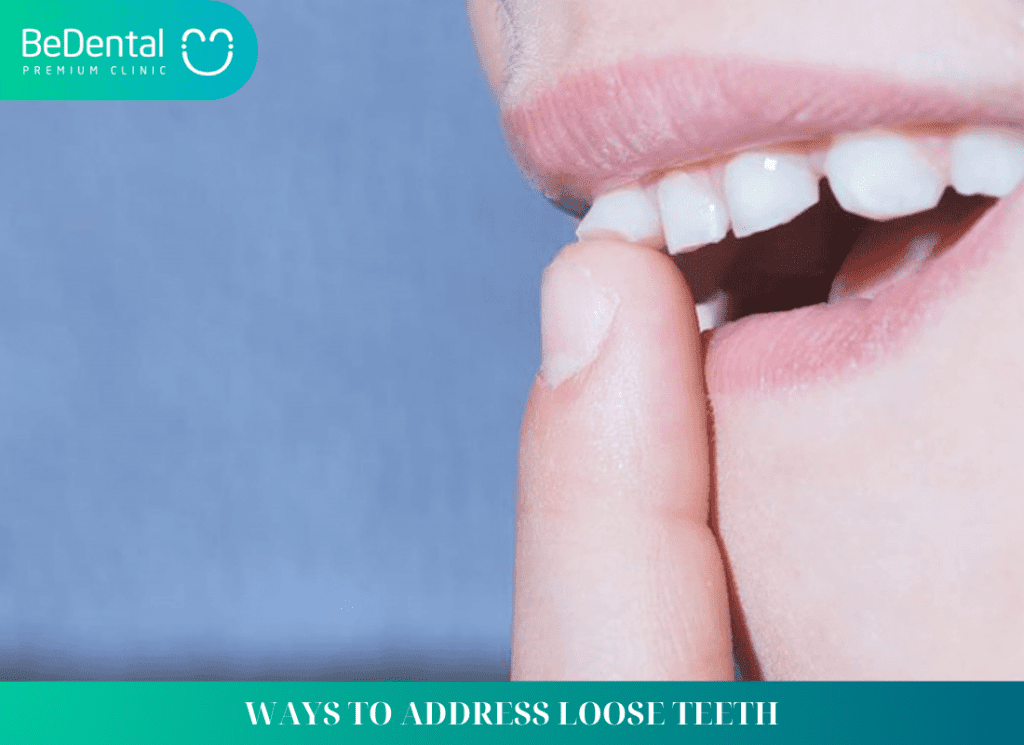
As mentioned above, loose teeth can stem from various causes. Therefore, the most important aspect in resolving this issue is to identify the underlying cause. To do so, it is best to consult a dentist for treatment. The dentist will assess the severity of each case of loose teeth and the causes of the condition to provide appropriate treatment advice.
Approaches to addressing loose teeth include:
- For cases of loose teeth due to external forces:
See more: Dental implants
If the teeth are completely normal with no dental issues and have not fractured, the dentist may use specialized tools to stabilize the loose teeth. Over time, the teeth will gradually regain stability. In cases of tooth fractures or loss, the dentist may perform cosmetic restorative procedures based on the patient’s needs.
- For cases of loose teeth due to gingivitis:
Prolonged accumulation of plaque on the teeth can lead to the formation of tartar, causing gum inflammation and progressing to gingivitis. Harmful bacteria in the plaque can damage the supporting bone structure, leading to bone resorption and loose or falling teeth.
In such cases, for comprehensive treatment, the dentist may remove tartar to clean, eliminate debris and bacteria, and clean the tooth roots to allow the gums to reattach to the teeth.
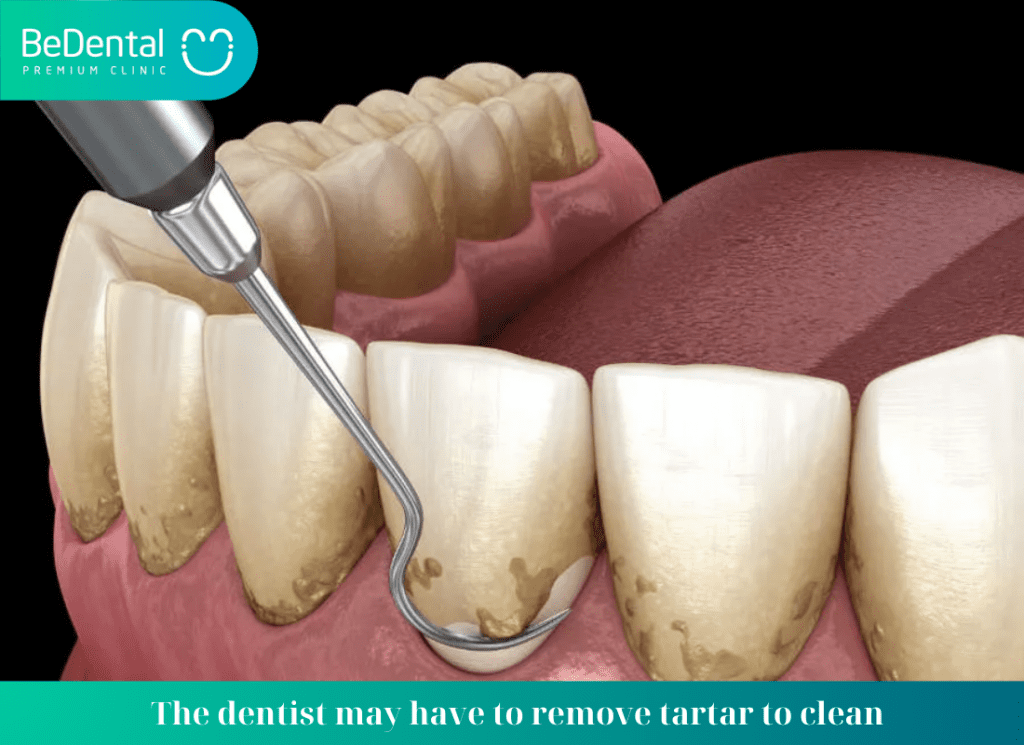
- For cases of gum disease:
In cases where loose teeth are caused by gum disease, the dentist may recommend surgery to remove infected gum tissue and damaged bone. In this procedure, the dentist will incise the gum and remove the affected tissue for the patient.
- For cases of bone resorption or bone degeneration:
To treat loose teeth caused by bone resorption or degeneration, the dentist may take bone grafts from other parts of the body or use specialized bone grafting materials to repair the affected bone area.
See more: Implant osstem
- For cases of loose teeth due to excessive teeth grinding:
Adjusting the bite alignment is essential in this situation. The dentist will reconfigure the biting surface of the teeth by removing a small amount of tooth enamel to reduce pressure on the teeth, allowing them to quickly restore to their normal state.
3. Ways to Prevent Loose Teeth
In addition to undergoing dental treatments, you should also consider changing your daily diet to improve oral health. Enhance your diet with foods that are beneficial for your teeth and gums, such as:
- Fruits rich in vitamin C: Vitamin C is essential for maintaining healthy gums. A lack of vitamin C can lead to conditions like bleeding gums and gum swelling. Fruits high in vitamin C include lemon, grapefruit, tangerine, etc.
- Calcium supplementation: Calcium helps strengthen teeth, preventing them from becoming loose. You can add calcium to your diet through foods like meat, fish, and seafood. Yogurt is also a good choice because the probiotics in yogurt not only boost the immune system but also prevent oral diseases.
- Polyphenol-rich herbs: This compound inhibits bacterial activity in the oral cavity. You can supplement polyphenols through black tea.
- Additionally, you can include other immune-boosting and oral health-promoting foods such as mushrooms, fiber-rich green vegetables, eggs, milk, etc.
- Avoid smoking and alcohol consumption: Smoking and alcohol can lead to loose teeth and other oral health issues.
See more: Implant care and 6 common concerns
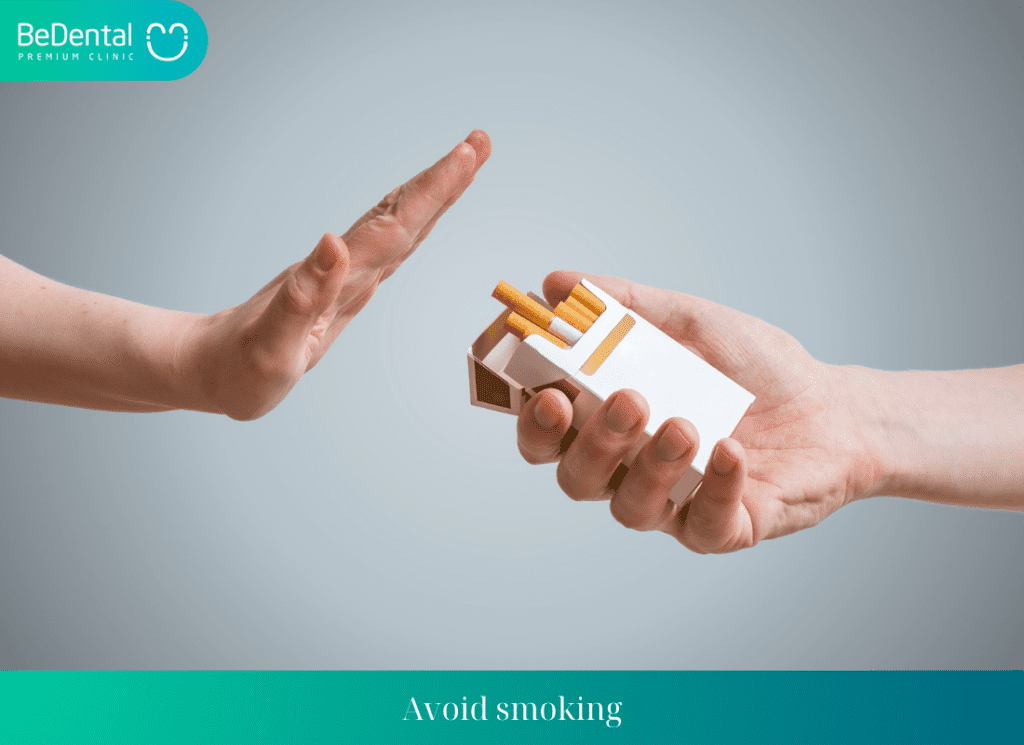
- Seek annual guidance from a dental expert: Regularly consult a dental professional for check-ups and early treatment of any dental issues.
- Choose quality dental replacement materials: If you need tooth replacement, opt for high-quality materials like composite or ceramic to protect remaining teeth and reduce the risk of loose teeth.
- Visit the dentist every 3-6 months for teeth cleaning and oral health check-ups.
- Furthermore, maintain proper daily oral hygiene by using dental floss to remove food debris after meals and using fluoride mouthwash to strengthen your teeth.
4. Most asked questions
4.1 Are loose teeth a problem? What are the potential complications of untreated loose teeth?
Untreated loose teeth can lead to several potential complications, including:
- Tooth Loss: If the underlying cause of loose teeth is not addressed, it can progress to the point where the tooth becomes so unstable that it may need to be extracted.
- Gum Disease Progression: Loose teeth are often a sign of gum disease, and if left untreated, the infection can spread and lead to further damage to the gums and supporting bone.
- Abscess Formation: Infection around a loose tooth can result in the formation of an abscess, a painful pocket of pus that can cause swelling, fever, and general discomfort.
- Shifting Teeth: Loose teeth can create gaps in the dental arch, causing adjacent teeth to shift position and potentially leading to misalignment and bite issues.
- Difficulty Chewing: Loose teeth can make it challenging to bite and chew properly, affecting one’s ability to eat comfortably and potentially leading to nutritional deficiencies.
- Speech Impairment: Changes in tooth position due to loose teeth can impact speech patterns and pronunciation, causing difficulties in communication.
- Jaw Bone Loss: Prolonged tooth mobility can accelerate bone loss in the jaw, leading to changes in facial structure and potential complications for future dental treatments.
- Chronic Pain and Discomfort: Loose teeth can cause ongoing pain, sensitivity, and discomfort, affecting daily activities and quality of life.
It is essential to seek prompt dental care if you experience loose teeth to prevent these complications and maintain optimal oral health.
4.2 How can habits like smoking and alcohol consumption impact tooth stability
Habits like smoking and alcohol consumption can have a significant impact on tooth stability and overall oral health. Here’s how these habits can affect tooth stability
Smoking:
- Smoking reduces blood flow to the gums, depriving them of essential nutrients and oxygen. This can lead to gum disease, a common cause of loose teeth.
- Smoking weakens the immune system, making it harder for the body to fight off infections in the mouth, which can contribute to gum disease and tooth loss.
- Smoking stains teeth and can contribute to the buildup of plaque and tartar, which can lead to gum inflammation and periodontal disease.
- Smoking can delay healing after dental procedures, making it harder for the gums and bone to recover and support the teeth properly.
Alcohol Consumption:
- Excessive alcohol consumption can dehydrate the body, including the mouth, leading to reduced saliva production. Saliva plays a crucial role in washing away food particles and bacteria, and its reduction can contribute to tooth decay and gum disease.
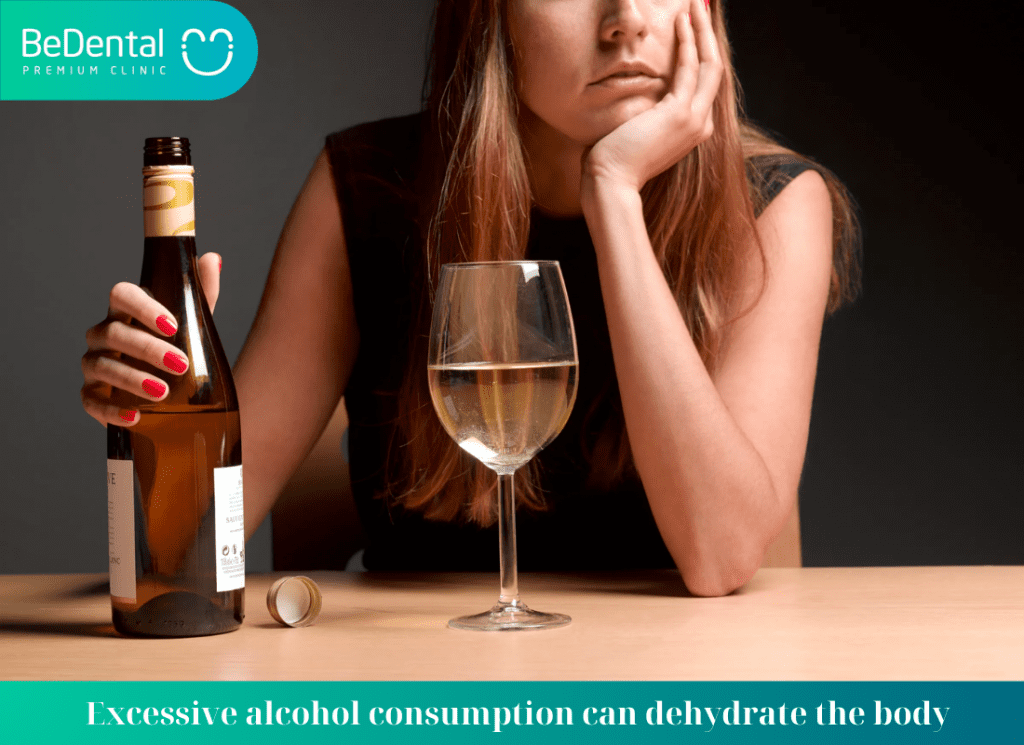
- Alcohol can erode tooth enamel, making teeth more susceptible to decay and sensitivity.
- Alcohol abuse can impact overall nutrition, leading to deficiencies in essential vitamins and minerals necessary for healthy teeth and gums.
- Chronic alcohol consumption can weaken the immune system, making it harder for the body to fight off infections that can affect oral health.
Overall, smoking and excessive alcohol consumption can weaken the supporting structures of the teeth, increase the risk of gum disease, and hinder the body’s ability to maintain oral health. It is essential to limit or quit these habits to promote tooth stability and overall oral health.
See more: Dentium implants – 5 steps procedure
5. Conclusion
In conclusion, addressing loose teeth requires a comprehensive approach that involves both dental treatments and lifestyle changes. Dental interventions such as surgery, bone grafting, and bite alignment can help stabilize loose teeth caused by various factors, including gum disease, bone resorption, and teeth grinding.
Additionally, incorporating a diet rich in vitamins, minerals, and polyphenols can promote oral health and prevent further dental issues. Avoiding harmful habits like smoking and alcohol consumption is crucial in maintaining strong teeth and gums.
Regular dental check-ups and proper oral hygiene practices are essential for preventing and managing loose teeth. By following these recommendations and seeking guidance from dental experts, individuals can effectively address loose teeth and maintain optimal oral health.
The above information was shared by BeDental regarding “Are loose teeth a problem?” If you have any questions, feel free to reach out to us for detailed answers.
Tư vấn chuyên môn bài viết:
BÁC SĨ DƯƠNG THỊ THÙY NGA





